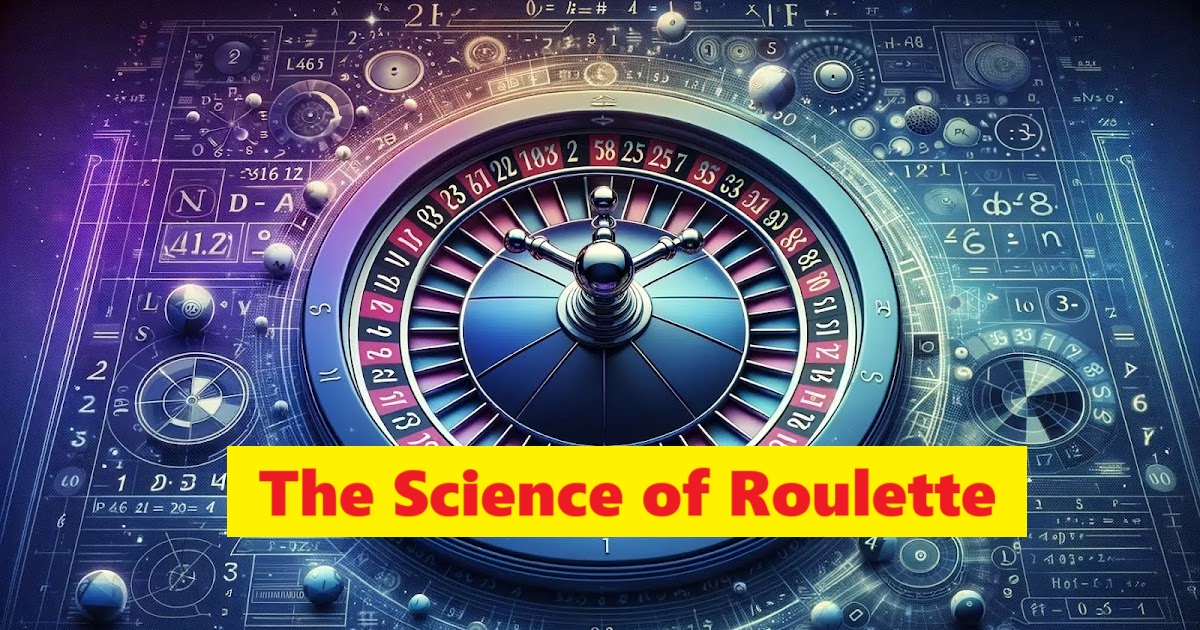
The Science of Roulette: How Physics and Math Influence the Game
Roulette is often seen as a game of pure chance, where the spin of the wheel determines the outcome. However, beneath the surface of this iconic casino game lies a fascinating interplay of physics and mathematics. From the trajectory of the ball to the design of the wheel, science plays a crucial role in shaping the game’s outcomes. In this article, we’ll explore how physics and math influence roulette, uncover the secrets behind the wheel, and provide insights into how you can use this knowledge to enhance your gameplay.
The Physics of the Roulette Wheel
The roulette wheel is a marvel of engineering, designed to ensure randomness and fairness. Here’s how physics influences the game:
1. The Ball’s Trajectory
- The ball’s movement is governed by principles of physics, including velocity, friction, and gravity. As the ball spins around the wheel, it loses momentum due to friction and eventually falls into one of the numbered pockets.
- Factors like the ball’s initial speed, the wheel’s tilt, and the surface texture of the wheel all affect the ball’s trajectory.
2. Wheel Design
- Modern roulette wheels are precision-engineered to ensure fairness. The pockets are evenly spaced, and the frets (dividers between pockets) are designed to minimize bias.
- Any imperfections in the wheel, such as uneven weight distribution or wear and tear, can create biases that affect the ball’s landing.
3. The Role of the Dealer
- The dealer’s spinning technique also plays a role in the outcome. Experienced dealers can spin the wheel and ball consistently, but the results remain random due to the complex interplay of forces.
4. Randomness and Chaos
- Roulette is a chaotic system, meaning that even small variations in initial conditions (like the ball’s starting position or the wheel’s speed) can lead to vastly different outcomes. This ensures that each spin is independent and unpredictable.
The Mathematics of Roulette
While physics governs the ball’s movement, mathematics determines the odds and payouts. Here’s how math influences the game:
1. Probability
- Probability is the likelihood of a specific outcome occurring. In roulette, the probability of the ball landing on a particular number or color depends on the wheel’s layout.
- European Roulette: 37 pockets (1-36 and 0), so the probability of landing on a single number is 1/37 (2.7%).
- American Roulette: 38 pockets (1-36, 0, and 00), so the probability of landing on a single number is 1/38 (2.63%).
2. House Edge
- The house edge is the casino’s mathematical advantage over players. It’s calculated based on the wheel’s layout and the payouts for different bets.
- European Roulette: House edge of 2.7%.
- American Roulette: House edge of 5.26% due to the additional double zero.
3. Expected Value
- Expected value (EV) is a key concept in probability that helps you understand the average outcome of a bet over time. It’s calculated as:
- EV = (Probability of Winning × Payout) – (Probability of Losing × Bet Amount)
- For example, in European Roulette, the expected value of a $10 bet on a single number is:
- EV = (1/37 × 350)−(36/37×10) = -$0.27
- This means you can expect to lose 0.27onaverageper10 bet.
4. Betting Strategies
- Many players use betting strategies like the Martingale, Fibonacci, or D’Alembert to manage their bankroll and minimize losses. While these strategies don’t change the odds, they can help you play more strategically. For more strategies, check out this guide on Roulette Strategy.
How Science Can Help You Play Smarter
Understanding the science behind roulette can give you a deeper appreciation for the game and help you make more informed decisions. Here’s how:
1. Choose the Right Wheel
- Opt for European or French Roulette, which have lower house edges (2.7% and 1.35%, respectively) compared to American Roulette (5.26%).
2. Focus on Even-Money Bets
- Even-money bets (red/black, odd/even) have the best odds of winning (48.6% in European Roulette), making them ideal for beginners and risk-averse players.
3. Avoid Biased Wheels
- While rare, biased wheels can occur due to wear and tear or manufacturing defects. If you notice certain numbers appearing more frequently, consider switching tables.
4. Use Betting Strategies Wisely
- Betting strategies can help you manage your bankroll, but they don’t change the odds. Use them as a tool for disciplined play, not as a guarantee of winning.
5. Practice for Free
- Many online casinos, including King Casino, offer free roulette games where you can practice your strategies and get comfortable with the game.
The Future of Roulette Science
As technology advances, the science of roulette continues to evolve. Here are some trends to watch for:
1. AI and Predictive Analytics
- Artificial intelligence (AI) and machine learning are being used to analyze roulette outcomes and identify patterns. While these tools can’t predict the future, they can provide valuable insights into gameplay.
2. Smart Wheels
- Some casinos are experimenting with “smart wheels” that use sensors to track the ball’s movement and ensure fairness. These wheels can detect and correct biases in real-time.
3. Virtual Reality (VR) Roulette
- VR technology is revolutionizing the roulette experience, offering immersive gameplay that replicates the physics of a real wheel.
4. Blockchain Technology
- Blockchain technology could be used to enhance transparency and security in roulette, ensuring fair play and instant payouts.
Final Thoughts
Roulette is a game where science and chance intersect, creating a thrilling and unpredictable experience. By understanding the physics and mathematics behind the game, you can make smarter decisions, manage your bankroll effectively, and enhance your overall gameplay. Whether you’re a casual player or a seasoned pro, the science of roulette offers valuable insights that can help you enjoy the game to its fullest.
For more tips, strategies, and guides on roulette and other casino games, visit King Casino. And if you’re ready to test your luck at the wheel, check out their Roulette Strategy Guide to get started.



